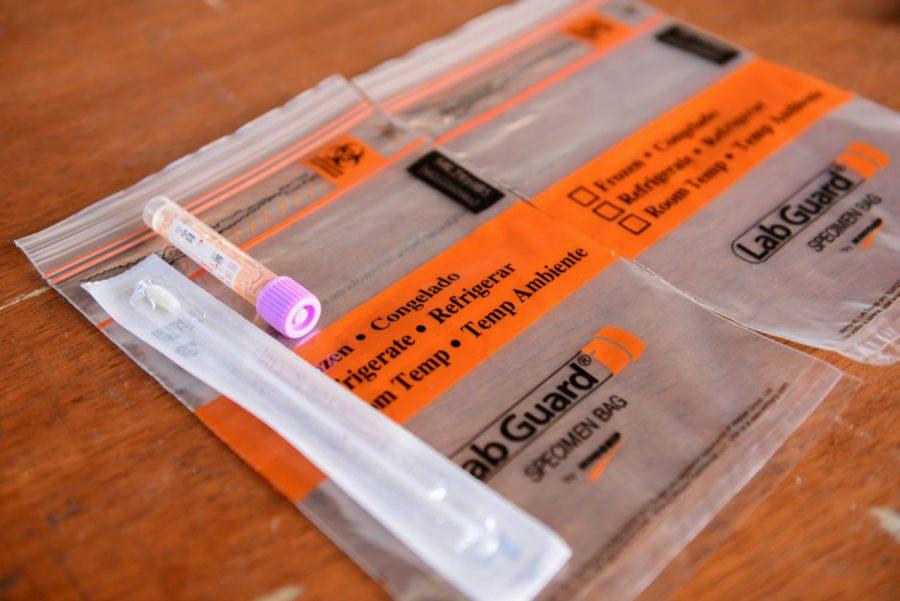Pitt adds 48 new COVID-19 cases since Thursday
April 6, 2021
Pitt added 48 new COVID-19 cases, composed of 46 students and two employees, between last Friday and Monday, with 94 students currently in isolation. The University’s previous case report, covering last Tuesday to Thursday, included 54 cases.
This is the second case report since Pitt moved to the Elevated Risk posture and began a shelter-in-place, and arrives after the Allegheny County Health Department and state health officials have continued to report high case numbers. According to hospital data compiled by The New York Times, about 82% of ICU beds in the Pittsburgh area are currently occupied, compared with 78% statewide and 70% nationally. UPMC Shadyside is at 88% capacity and has 24 ICU beds remaining.
The COVID-19 Medical Response Office said COVID-19 cases continue to rise, with a new single-day case record set at 28 on Friday. The office also said the spread of cases seems to be contained to “small pockets” within residence halls, and contact tracing has not revealed any “clear connections” between these infected groups. The CMRO said certain residence hall lounges will remain open during the shelter-in-place period in an effort to combat feelings of loneliness as well as any roommate conflicts.
The office said it’s changing its surveillance testing strategy. The CMRO said fewer students are accepting invitations to the randomized testing, so the University is stopping this randomized surveillance testing. Instead, the testing site will be open to any asymptomatic student who wishes to be tested, with no questions asked. Testing is available at Posvar Hall on Wednesday mornings from 10 a.m. to 2 p.m. The email said the CMRO is also offering “increased focus testing” next week in response to current virus trends and asked students to get tested if invited.
“We are sounding the alarm. Current spread is endangering our campus and surrounding communities,” the email said. “Please get tested and please continue to wear your face covering, wash your hands, practice physical distancing and follow shelter-in-place protocols.”
The CMRO still encouraged those who are offered a COVID-19 vaccine to take it and not to wait until Pitt has more vaccines. For those who are vaccinated, the CMRO said they must remain vigilant because the pandemic is still ongoing, many are not vaccinated yet and there is still uncertainty about transmission of COVID-19 after vaccination.
The University has had 1,264 students and 230 employees test positive since June 26, with 1,170 students and 222 employees recovered thus far.
There are 94 students currently isolated at home or in Pitt’s isolation housing, which is reserved for those who have either a confirmed or suspected COVID-19 infection. Pitt has a total of about 300 isolation beds.
Pitt has implemented a systematic, random testing strategy, which involves testing several hundred students each week on Mondays and Wednesdays. Out of 242 students tested last Wednesday, seven were positive, increasing Pitt’s prevalence rate from 0.72% to 0.83%.
The University implemented a variety of new policies due to the pandemic during the spring semester, though some community members question whether the safeguards are sufficient. Students needed to have a negative COVID-19 test before moving back to campus and were encouraged to shelter in place at least seven days before moving in. Once on campus, students were required to shelter in place again for at least 10 days or until the CMRO announced that it was safe to move about campus. Students could attend classes during this time. Pitt has also planned testing of students to monitor the virus’ spread, required students, faculty and staff to complete COVID-19 training and imposed strict penalties for violations of health guidelines.
Kenyon Bonner, vice provost and dean of students, said student organizations who host a party or event can face suspension and students hosting large parties can be suspended. Students living on campus who attend large parties can have their housing suspended for the semester and students living off campus can be switched to persona non grata status, preventing them from entering University buildings or property.



